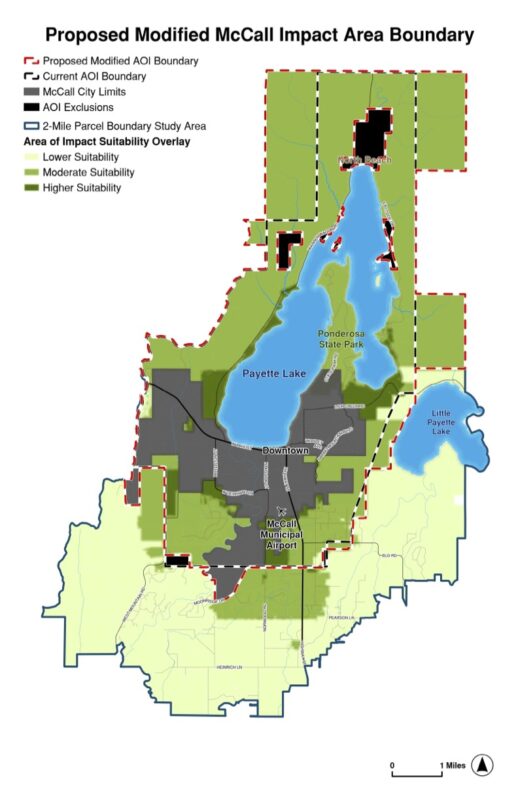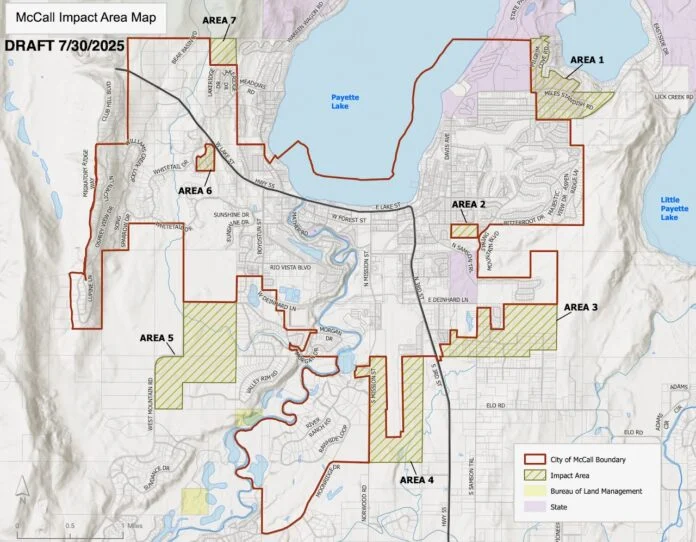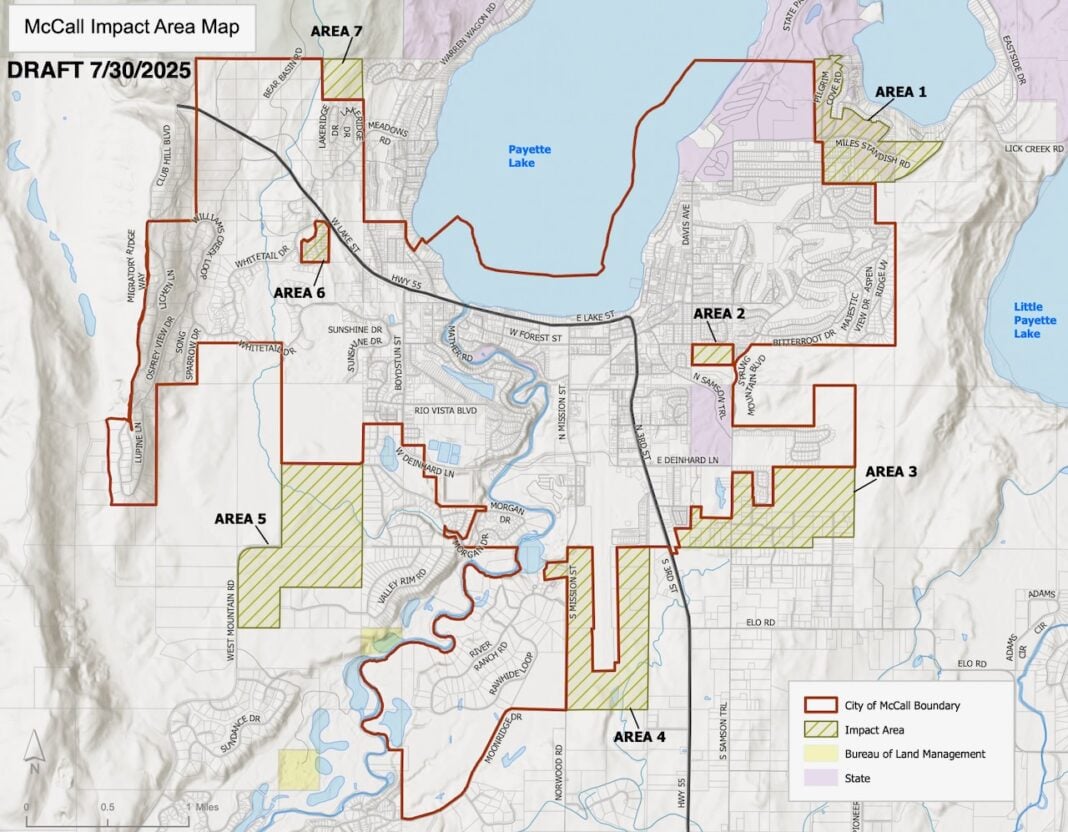A plan to overhaul the boundaries and administration of a growth planning area around the City of McCall was adopted last week by Valley County.
The Board of County Commissioners approved cutting the McCall Impact Area in size by about 94% while also repealing special impact area development standards in favor of county zoning laws.
The new boundaries and zoning laws are set to take effect Jan. 1, at which point Valley County will be solely responsible for all land use decisions and planning surrounding McCall.
“We will work with the city on a transition period to make sure that everything transitions for our residents and that we come up with processes to make this happen correctly,” said Sherry Maupin, who chairs the Valley County Commission.
Ziply to offer high-speed fiber internet in Valley County
What are the new boundaries?
The new McCall Impact Area boundaries were drawn by the county, which was required by a new state law to update impact area boundaries for McCall, Donnelly, and Cascade.
The new boundaries shrink the impact area from 26 square miles of land surrounding the city to about 1.7 square miles. Land fronting Idaho 55 south of McCall and around Payette Lake is not included in the new impact area map.
The Valley County Planning and Zoning Commission will be responsible for reviewing development applications in the impact area starting Jan. 1.
For decades, the county has adopted zoning laws for the impact area that resemble those in place within city limits. Development applications are then reviewed by the McCall Area Planning and Zoning Commission, which includes county-appointed impact area representatives. Final authority on land use decisions rests with the county, however, because it has jurisdiction over the impact area.
The county commissioners have repeatedly described that process as legally cumbersome and said continuing it would require hiring another attorney.
“I believe what we’re doing is going to set this ship straight,” Commissioner Neal Thompson said. “It clears up this muddled mess we’ve had for too many years.”
McCall’s reconsideration request denied
Before approving the new impact area boundaries, the county commissioners formally denied a reconsideration request submitted by McCall on Aug. 26, saying it did not raise any new issues that changed the county’s thinking.
The city’s five-page letter, signed by McCall Mayor Bob Giles, was critical of the county’s plan for the impact area, labeling it “highly subjective, undocumented, and inconsistent with state law.”
In May, the city proposed an expanded McCall Impact Area map that would include more land around Payette Lake to avoid splitting parcels, which the new state law does not allow.

The city’s proposal was based on an overlay of data related to criteria for determining impact area boundaries in the new law, including utility infrastructure, anticipated growth, geographic features, and public services.
Maupin said the county relied on much of the same data as the city, but interpreted it based primarily on where development outside of city limits is likely to occur within the next five years, as required by state law.
The county expects water and sewer availability to limit development outside of McCall in the near term, but emphasized that the law requires the boundaries to be reviewed every five years.
Without donors like you, this story would not exist.
Make a donation of any size here
“This is not a final document,” Caldwell said. “So I think if (water and sewer availability) changes, then the area of impact can change as well.”
County ‘committed’ to stricter shoreline rules
Water quality in Payette Lake was among the top concerns raised by city officials and other critics of the county’s plan to shrink the impact area.
Currently, all land within 150 feet of Payette Lake is subject to special city zoning rules with increased setbacks and stricter design standards.
Those rules will no longer be in place around most of Payette Lake come Jan. 1, but Maupin said the county is “committed” to adopting similar rules for all Valley County waterways as part of an in-progress update of its waterways ordinance.
A committee that is expected to include architects, McCall residents, and planners is also expected to begin meeting early next year to develop updated design rules for the county, she said.
Commissioners air zoning opinions
One of the key differences between land use administration in McCall and in Valley County is zoning.
McCall assigns zones to land in the city that dictate allowable development, while the county uses a multiple-use zoning concept that evaluates all development proposals based on compatibility with neighboring properties.
Maupin openly stated during last week’s meeting that she favors moving the county to traditional zoning and said the commissioners could discuss doing so “in the next few years.”
Thompson was unsure of his position on changing the county’s zoning, citing a need for more education.
Meanwhile, Caldwell warned that it could be a complicated and expensive process that places the county in a precarious position.
“I don’t know that I want to be the person setting the winners and the losers in terms of property values, which is what may happen if we were to zone,” she said.






